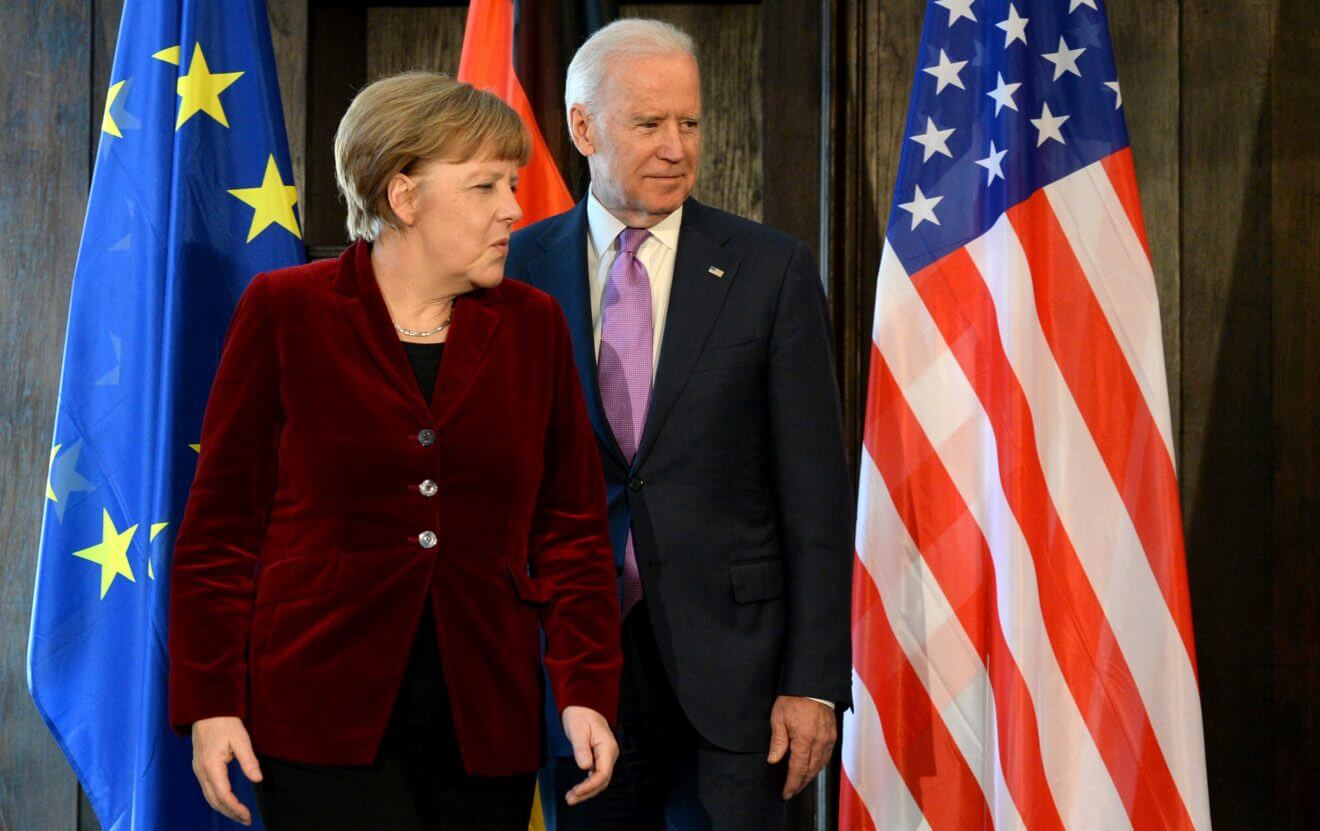Following a turbulent four years with the Trump administration in power in the United States (US), Democratic leader Joe Biden’s victory comes as a relief for the European Union (EU). Donald Trump, through his presidency, was extremely vocal about his criticism of the EU and its member states on several issues including international trade, defence and technology. However, considering their positive history with Joe Biden during his tenure as Vice President, EU appears to be optimistic about reviving its transatlantic ties with the US.
Congratulating the Biden-Harris duo for its victory, the President of the European Commission, Ursula von der Leyen, envisioned a “renewed” partnership between the two international powers. This sentiment was further echoed by German Chancellor Angela Merkel, French President Emmanuel Macron and Italian premier Giuseppe Conte, amongst others.
Biden’s victory is specifically being celebrated by environmentalists across Europe. Just before the election, Donald Trump officially withdrew from the Paris climate deal, making the US the first country to do so. This endangered the agreements aim to limit global warming to “1.5-2 degrees Celsius above pre-industrial levels” as the US is the world’s largest source of greenhouse emissions. However, Biden vowed to re-enter the agreement if he was elected as President. During his campaign, he also spoke of introducing a long-term plan to reduce the US’ reliance on oil and gas. This is seen as a major sign of relief for several leaders in Europe that have been long advocating for action against climate change.
Biden’s presidency will also be beneficial for the EU’s members who are a part of the NATO. In June, Donald Trump criticised Germany for not spending even 2% of its GDP on defence. He has also criticised other European members of the NATO for failing to work towards their promise to expend at least 2% of their GDPs on defence budgets by 2024. He said, “Until they pay, we’re removing our soldiers, a number of our soldiers.” Trump’s apparent threat generated both concern and criticism from Germany, as it fears that Europe’s NATO-led defence will be left vulnerable as a result of American withdrawal. The US accounts for 70% of NATO’s defence spending and contributes more troops than any other country. This is explicitly alarming in light of the growing military ambitions of the Russian leader, Vladimir Putin, with Russia’s relations with the West hitting an all-time low since the cold-war. In the past, US troops have played an essential role in deterring Russian aggression in the region.
While Biden’s stand on the issue may not be as drastic as Trump’s, with the US’s foreign policy shifting to China, the European countries will still be pushed to take the lead on countering threats from Russia. This has been acknowledged and accepted by the European members of the NATO too. In fact, German Chancellor Angela Merkel said, “we Germans and Europeans know that in this partnership in the 21st century, we have to take on more responsibility.” She added, “America is and will remain our closest ally, but it expects more from us – and rightly so … we are working on it.” However, according to German Foreign Minister Heiko Maas, the Biden-led administration would not be as fixated on defence spending, but would rather take a more holistic approach to strengthen the NATO.
Trade is another major issue, wherein the EU-US friendship deteriorated over the past four years after the Trump administration ended negotiations over a US-EU trade deal and imposed tariffs on steel and aluminium products from Europe. These differences led to a dispute before the World Trade Organisation (WTO), wherein the disputes body paved the way for the EU’s decision to impose tariffs worth $4 billion on US goods as a result of “illegal U.S. subsidies to aircraft maker Boeing.” Despite predicting a positive turn in the EU-US relations, on Tuesday, the EU announced its decision to impose the tariffs on the US. Valdis Dombrovskis, the Trade Commissioner for the EU, said: “We have made clear at every stage that we want to settle this long-running issue … Regrettably, despite our best efforts [and] due to lack of progress on the U.S. side, we can confirm that the European Union will later today exercise our rights and impose counter-measures awarded to us by the WTO in respect to Boeing.” However, experts predict that after Biden taking control over the White House in January, these issues are likely to be resolved.
EU Seeks to Revive Relations with US Following Biden’s Victory
Following a turbulent four years with the Trump administration in power in the United States (US), Democratic leader Joe Biden’s victory comes as a relief for the European Union (EU).
November 10, 2020

German Chancellor Angela Merkel with erstwhile American Vice-President Joe Biden during a meet in 2015. SOURCE: AFP
